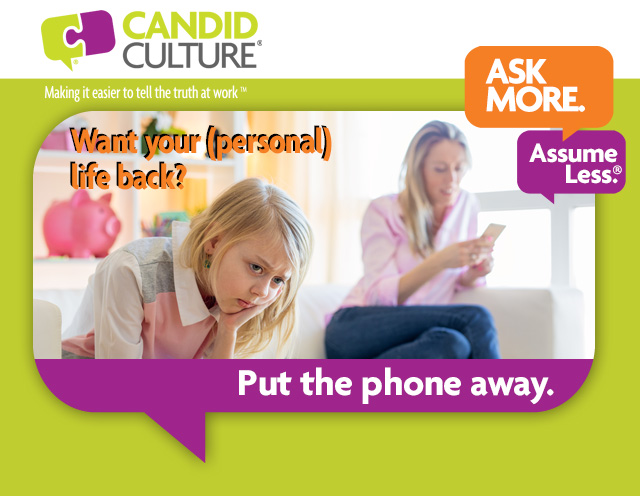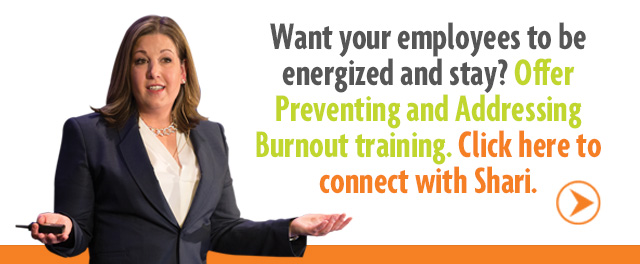Want More Balance? Put the Phone Away.
When my son asked that I not be on my phone on his birthday, I cried. I was surprised. I’m a very attentive parent. I spend a lot of time with my son. And apparently, as he has noticed, I also spend a lot of time with my phone.
There is always a good reason (excuse) for looking at my phone. I’m self-employed. I run a business. It’s important to be responsive to current and potential clients. But is every message timely? Urgent?
It’s become obvious – I’m addicted to my phone. I take it everywhere. I check it constantly. It’s such a habit, I don’t even see myself pick up the phone and check for messages.
Many people’s response to Covid was to move cities, switch jobs, continue working from home, and possibly work less. People are yearning for more balance and freedom. Yet, we are addicted to our phones, attached like they are a lifeline.
I regularly get calls from clients telling me that employees are tired and over extended – burnt out. They want a way out. Burnout is an organizational issue that begins and stops with strong management and leadership. One thing individuals can do to protect their time and separate work from their personal lives, is to put the phone away. By the way, next week’s tip is about how to prevent burn out.
The phone takes our attention and a lot of time, I suspect more time than we realize. When I’m focused and working during the day and hear that little ping of a text message, I stop working to check my phone. It’s a quick message, so I reply. Then the sender replies. Then I reply. Soon it’s been 20 minutes. Where was I with my work again?
These distractions can happen a few times a day. Then I pick my son up from school and lament how little I got done that day, and wonder when I’ll have time to finish my work? After my son’s asleep? In the morning before he wakes up? Instead of doing something I enjoy at night and sleeping in the morning, I’m trying to regain lost time.
Burnout is a systemic, organizational issue. But we can create boundaries with our phones today and regain some time and focus.

Here are the things I’m trying:
- I leave the phone face down when I’m working and only turn it over if it rings. My son’s school doesn’t text when there is an emergency, they call.
- My phone is on silent if my son is home and I’m not expecting a timely call or message.
- I put my phone in another room when he is home, so I’m not tempted to look at it.
- I leave the phone on another floor during my son’s bedtime routine, so that time is uninterrupted.
I don’t always do these things consistently, but I’m more aware of my addiction now. I’m conscious and I’m trying.
The key to taking back our time and having a balanced life is boundaries. A clear boundary (a rule you create for yourself) makes decision-making easier. There is no struggle, no internal fight. You are simply following the guidelines you put in place for yourself.
For example, if you decide to quit eating sugar for 30 days and go to a party where the sweets look really amazing, that experience will be stressful without a clear boundary. “I’m not eating sweets.” Not, “I’m not eating sweets unless they look really good.”
The same is true for the hours we work and work travel. If I set a boundary that I only travel one night a week and never miss two consecutive bedtime routines with my son, it’s easy to say no to work that doesn’t fit those boundaries, no matter how much I’d like to do that work.
Our phones can be the same. If you want to be less tied to your phone, set boundaries. “I only check my phone at the top of the hour. Then I put it on silent until the next hour.” “I’m available via phone, email and text until 5:30 pm each day, then I don’t check or respond to message until 8:30 am the next day.” Whatever boundaries you establish, tell the people around you who are impacted.
If your boss is used to getting responses at 8:00 pm, tell them the change you’re making and tell them why. If friends or family are used to hearing back from you within minutes, adjust their expectations.
You don’t have to be tied to your phone like it’s a member of the family. It’s a tool, not an extremity.



